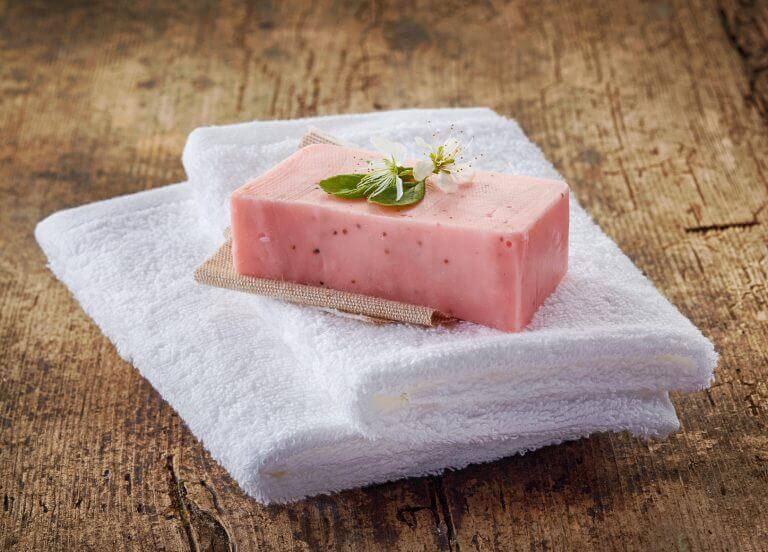6 Ways to Care for Your Breasts During Lactation
If the time has come to breastfeed your baby and you're asking how to care for your breasts during this stage, your concern is very valid. We want to encourage you to follow the suggestions in today's article.

Many women worry about what their breasts will look like after they stop breastfeeding their little ones. With this is in mind, you’ve probably asked yourself how to care for your breasts during the lactation stage.
Is there a way to avoid congestion and infection? Some women suffer from these complications while breastfeeding. However, the following advice will help you avoid them.
A baby’s suction can cause discomfort and sensitivity in your nipples, as well as some issues that can get in the way of proper feeding. Therefore, when breastfeeding, it’s important to care for your breasts properly.

Basic care for your breasts during lactation
1. Use special breastfeeding bras
While breastfeeding, you should opt for special bras designed for breastfeeding. These bras will help you take out your breasts when needed, easily and without delay.
Also, be sure to choose the right size. That way, you’ll avoid back pain and other issues that can result from the weight of your breasts.
2. Use absorbent nursing pads
You can place nursing pads between your nipples and your bra to absorb leaking milk.
Change them as soon as they’re full in order to keep the moisture from chapping your nipples and producing bacteria. It’s best to choose materials that are breathable. You can choose either disposable options or cloth pads.
3. Stay away from harsh soaps and alcohol
When washing your breasts, avoid using harsh, abrasive soaps, alcohol, and astringents. These products will only dry your skin and can produce irritation and chapping on your nipples… Causing pain and discomfort when your baby nurses.

4. Moisturize your nipples with your own milk
Your nipples are one of the most sensitive areas of your body. It’s common for women to experience irritation, chapping, pain and tension in their nipples when they start nursing their newborns.
To relieve discomfort, you can moisturize your nipples with your own breast milk each time you nurse, and then allow the area to air dry.
Doing so will help you maintain proper hygiene, as breast milk contains multiple antibacterial properties and helps wounds to heal.
However, if you experience intense pain or a burning sensation that lasts for several days, then you should see a professional. These symptoms can be signs of infection or some other problem that may require treatment.
5. Massage your breasts regularly
Massage is an important part in caring for your breasts during lactation. The benefits are multiple. Furthermore, massaging your breasts helps to prevent obstructions and congestion, issues that can produce a painful condition called mastitis.
How to massage your breasts? Massages should involve circular movements around the areola. Press gently on your breasts without rubbing your skin.
Repeat these movements on both breasts, being sure to massage the entire area. It’s best to perform these massages just before you nurse your baby.
6. Postural hygiene
It’s important for your baby to latch onto your breasts correctly in order to suckle correctly and not cause you harm. At the same time, you need to learn to release your baby from your breast once he or she is finished. Otherwise, your baby may end up tugging on your nipples and hurting your nipples.
To do so, simply insert your pinky finger in the corner of your baby’s mouth. This will loosen your baby’s suction on your nipple so you can separate him or her from your breast without problems.
What to avoid during lactation
- Avoid letting your baby use your nipple as a pacifier. Once he or she is done feeding, gently remove him or her from your breast.
- Don’t use underwire bras, as they contribute to congestion. Also, don’t let too much time go by between feedings so as not to accumulate milk in your breasts.
- Don’t always nurse from the same side. Rotate between breasts, including which one you offer first.
General advice for successful breastfeeding
When breastfeeding your baby, it’s important to practice the following guidelines in order to avoid problems and discomfort:
- Wash your hands before each feeding.
- Maintain good posture, both your own and your baby’s.
- Nurse your baby on demand.
- Use a bra that’s adequate for breastfeeding.
- Dry well after showering.
It’s very important that you care for your breasts carefully during lactation so that you can nurse your child without problems.

